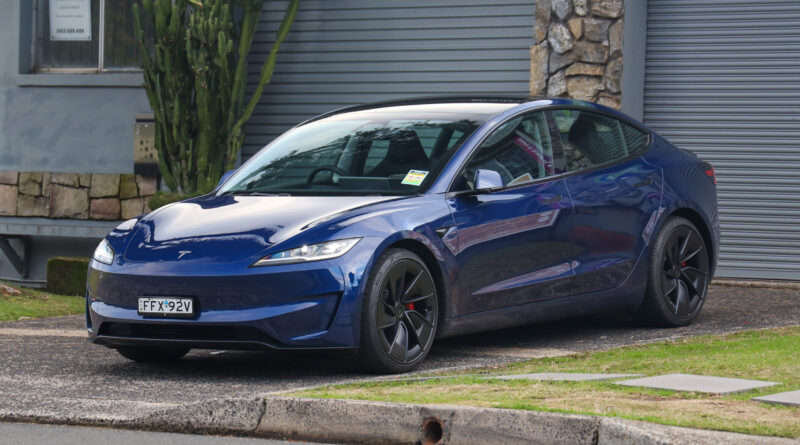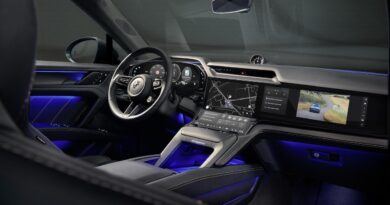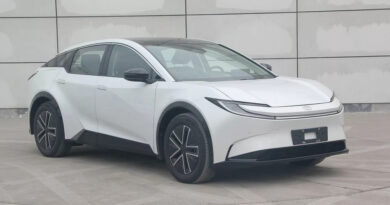Are electric vehicles dangerously fast? From the MG 4 XPower to the Tesla Model 3 Performance, supercar acceleration at Aldi prices is a recipe for disaster
Electric vehicles have ruined speed. Recently, at the race track part of the Porsche Taycan launch a colleague of mine refused to get into a car and experience the zero to 100km/h in 2.8 seconds launch-control explosion of the Turbo model because, he claimed, he’d done it before and knew he wouldn’t enjoy doing it again.
Now, to be fair, he said he was feeling unwell on the day, and he had actually done it before. But if the car in question had been a Ferrari 296, which hits 100 in just a tenth less, he would surely have risked it for the Italian biscotti.
Then, at the local launch of Zeekr, there was much talk of its 001 FR, with a motor in all four wheels and a zero to 100 claim of 2.1 seconds. I found the prospect of this painful rather than exciting, and it reminded me of talking to a Lamborghini engineer a few years ago about EVs and how much they must be giving him the shits.
He snorted in a properly Italian derisory fashion and claimed that zero to 100 times were of no interest any more, that Lambo had never cared about them, and that performance cars should only be compared on how fast they can hit 200km/h (scarily, the Taycan Turbo GT can now do that in 6.4 seconds, which sounds awful, too).
He also said that no one would ever get a road car below 2.3 seconds, because no matter how much annoying electrical grunt you’ve got, road tyres can’t apply it to the road faster than that.
I have always enjoyed driving fast, and wild acceleration, and I had a few goes at the track launch control Taycan experience, but I probably enjoyed the $175,100 base model’s 4.8 second sprint the most, because it felt like my brain had time to appreciate it, rather than just smacking into the back of my skull in the faster ones.
There is an argument, of course, that you wouldn’t want road missiles this fast getting into the hands of young people with poorly formed frontal lobes and the inability to imagine consequences. Porsche, helpfully, does its part by making its cars so furiously expensive that it takes a lifetime, if you’re lucky, to build up the wealth and experience to own one.
But then this week I drove the MG 4 XPower, which costs $59,990 and feels faster than a Porsche, because it is. This mild-looking hot hatch can launch you to 100km/h in 3.8 seconds, which is not only faster than that base Taycan, it’s quicker than a proper Porsche, the 911 Carrera 4S (4.2 seconds).
What’s alarming is not only the price and thus relative availability of this road rocket, it’s the fact that the experience feels like a furious storm in a flimsy tea cup. Especially given that even starting the car can present problems, long before you grip the wheel and plant your foot.
Every MG 4 I’ve driven has the same problem. You unlock it and it’s “on”, but you then need to push on the brake and spin a dial to engage Drive or Reverse, except that, all too often, it doesn’t bloody work, so you sit there stamping the brake, fiddling with the dial and frothing in fury.
Once it’s started, though, it’s like you’ve managed to prime the torpedoes. This XPower really is power to the X degree, with a motor on each axle, 320kW, 600Nm and the kind of rabid acceleration that makes it fee like the front tyres are desperately scrabbling to hold on to the ground.
The MG4 isn’t alone. A colleague of mine drove the first Model 3 Performance years ago, returning soon after all ashen faced and convinced a car that was so surprisingly fast would soon kill someone.
It all comes down to engineering. Rarely do you plant your foot in a $500,000 supercar and feel like you’re not entirely in control of the situation. The traction systems, the suspension, the tyres — all are carefully programmed or selected to match the car’s epic performance.
Cheaper EVs don’t feel like that. They feel like a Toyota Corolla, only one with a nuclear weapon under its bonnet
They are, put simply, too fast for everyday use, and everyday drivers. But above all, they feel dangerous.





Absolutely hilarious garbage. Car enthusiasts have always prattled on about top speed and acceleration. But now that EVs are here and are vastly superiors to filthy ICE vehicles, suddenly speed isn’t important. STFU.
I agree the Xpower is overpowered and not something I would ever recommend or consider. Your comments on turning the MG on suggest you have never owned a VW diesel or similar. The diesel needs to warm the cylinders a bit first. We owned a TDI Tiguan and it required you to turn it on, and press the brake. Turning the key to the start position has no impact until the car is ready. It is just a few seconds if the car is cold. When we bought the MG4 Essence (not an Xpower) starting the MG seemed easier than the VW. That is because after several years with the VW the first thing you do when you get into the driver’s seat is press the brake.
It is easy to get used to and arguably the safest way to set up a car. The routine is: get into the car automatically put your foot on the brake as you adjust and check the mirrors and surrounds. Once that is done turn the dial to D or R, lift you foot off the brake and press the accelerator. If you are not used to doing this every time you may need to rethink your qualifications and driving licence eligibility. It is you faulty muscle memory that is at fault, not the car start up design.